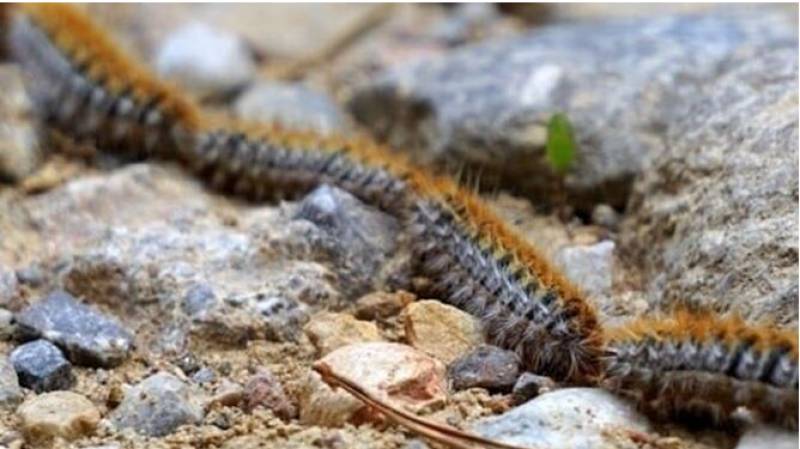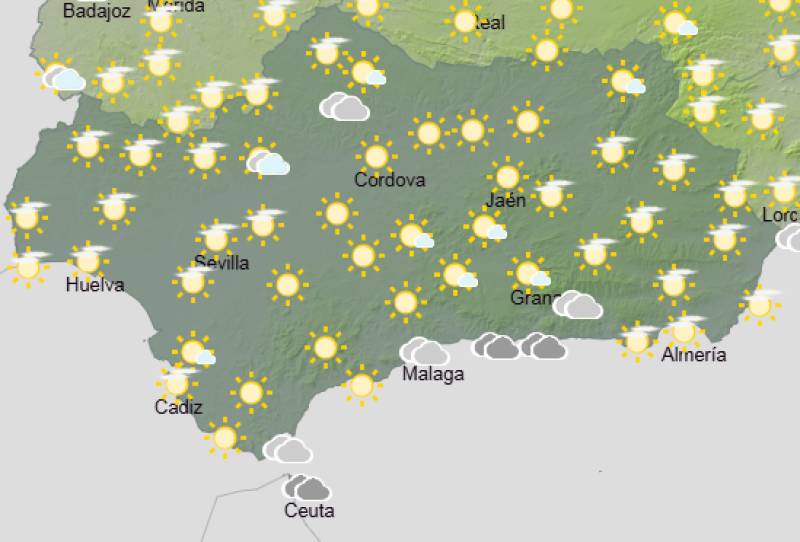

- EDITIONS:
 Spanish News Today
Spanish News Today
 Murcia Today
Murcia Today
 Alicante Today
Alicante Today
article_detail
Date Published: 14/03/2023
ARCHIVED - Andalucia acts against the threat of pine processionary caterpillars
Large areas of the Sierra de los Filabres in Almería and the Sierra Nevada are overrun with the dangerous pests

Given the mild winter Spain has just experienced, processionary caterpillars have begun appearing earlier than ever, rows and rows of which can be easily spotted travelling head to toe on roads and footpaths close to pine trees. The situation has become worrying in the Sierra de los Filabres in Almería and the Sierra Nevada, where the huge habitat is being decimated by the hungry insects.
Pine processionary caterpillars can result in skin irritations in humans and cause catastrophic injuries for dogs and cats but aside from this, their voracious appetite during the last stage of development is one of the greatest threats to pine forests in the Andalucia region, specifically Almeria province.
The caterpillars feed on pine needles at night and can lead to severe defoliation, which stunts the new growth of the trees, both an environmental issue and an aesthetic one.
Since these pests have arrived more than a month early this year, the Junta de Andalucia has sprung into action, spraying 200 hectares in Olula del Río, the Abla Forest House and the road up to Ohanes, according to sources from the Ministry of the Environment.
"This year, aware of the existing problem, we have resumed treatments against processionary moths that had not taken place for some time and we hope they give results", Minister Ramón Fernández-Pacheco explained during a visit to Garrucha on Monday March 13.
He added that "the monitoring plan makes us be vigilant in order to act as quickly as possible".
So called because they form a procession-like column when moving down from pine trees to the ground below, these caterpillars are especially lethal to curious young children and pets. Their bodies are covered in hairs shaped like a harpoon that become embedded in the skin, releasing thaumetopoein that causes pain and itching in most cases.
In more severe situations, the toxic hairs can lead to respiratory distress in people and animals and can even lead to death.
Image: ANECPLA
staff.inc.and
Loading
See more news about animals in Spain:
OR
Sign up for the Spanish News Today Editors Roundup Weekly Bulletin to get a comprehensive email with all the week’s news for Spain, Murcia, Alicante and Andalucía.
Get a sneak peek – here are a few of our recent Subscription Bulletins:
Discount Special Offer subscription:
36.95€ for 48 Editor’s Weekly News Roundup bulletins!
Please CLICK THE BUTTON to subscribe.
Contact Murcia Today: Editorial 000 000 000 /
Office 000 000 000



















